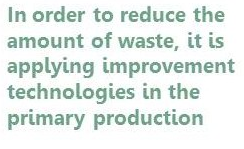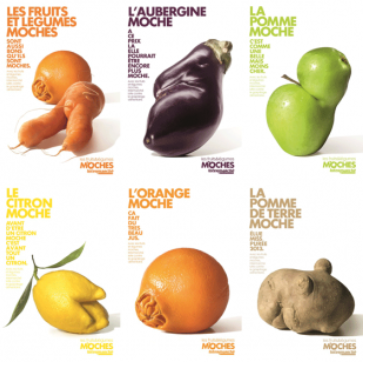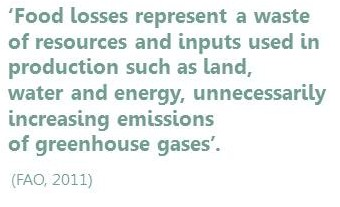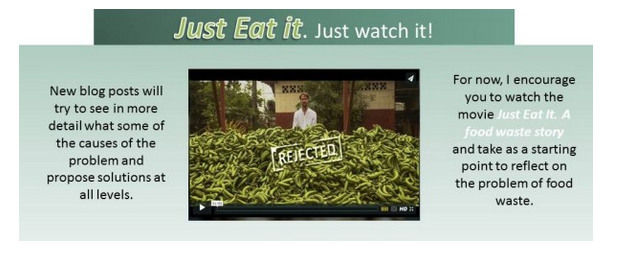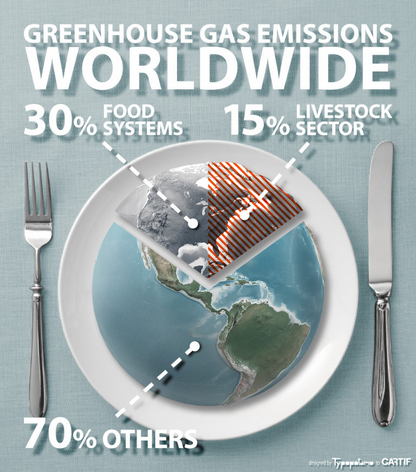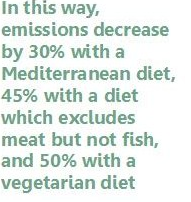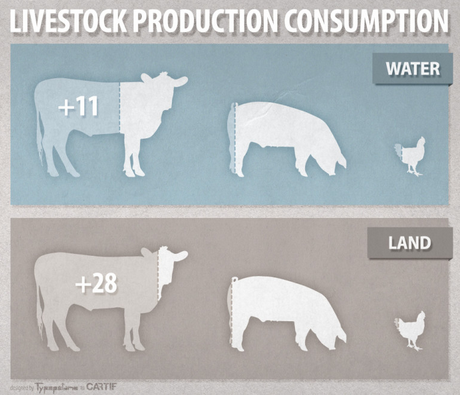
by Teba Torres Zapata | Mar 23, 2016 | Agrofood, CARTIF Blog
“True beauty lies within”, this words have been heard for all of us and in this way we have learned at home. But the reality is far from the theory when we are talking about fruits and vegetables.
Around 30% of the food waste problem is related with the primary production and one cause is that the fruits and vegetables dismissed by the exigencies in terms of quality (shape, size, appearance, etc). For instance, 20% of the potatoes are sorted out in Swedish potato farms due to quality standards (Mattssonet al., 2001). It is true that a lot of these products end up in other industries, like processing/ feed industries, but some produce is left unharvest or wasted. If it was not because they are the “wallflower”, they could arrive to the consumer because they have the same nutritive and organoleptic characteristics.
From this point of view, have appeared in some countries different initiatives which hope contribute to reduce the food waste commercializing theses “ugly” fruits and vegetables.
In 2014, European year against food waste, the French supermarket chain Intermarché launched in their stores the initiative “Inglorious fruits and vegetables”. With a massive global campaign and 30% cheaper, Intermarché decided to sell these non-calibrated and imperfect fruits and vegetables that it is not usually find it in a store, besides they put on sell soups and juices made from these vegetables to show at the consumers that these products could be so good like any other. The initiative was a successful and they got sell 1,2 tonns in a couple of days.
To encourage the purchase of these vegetables other supermarkets like Tesco and Sainsbury (UK) have started to offer these vegetables in their stores, and so reduce the food waste. Asda, the second supermarket chain more important in UK, put “wonky veg box” on sale by 3,50 pounds, 30% less than standard lines.
In Germany, two women launched a crowdfunding campaign to promote the benefits to consume vegetables that were not accepted in terms of quality. They work directly with local farmers and supermarkets that discard these veg and make dishes that then they sell in a coffee shop, labelling as “Culinary Misfits”.
Terms of quality are not the only reason for the primary production have the majority of the food waste. Inappropriate agronomic practices and wrong variety choices produce inferior quality leading to high losses in the selection process. A lake of appropriate resources during storage and transport or mechanic damage by multiple handling can increase the damage, especially for highly perishable commodities such as fruits and vegetables.
To reduce these amounts of waste it is carrying out some improvements techniques in the primary production, new post-harvest technologies (new silos, protection of storage cereal to pest, new packaging materials, temperature control, etc.), all these improvements have to adapt to the place where they applied remain affordable with respect to local conditions. Often some simple and economic solutions in transport, production and packaging can reduce food losses and waste in development countries (Millennium Project of the United Nations, 2005; FAO 2011B).
In this sense works the Postharvest Education Foundation, with educational programs aimed at reducing food losses, maintaining quality, market value, nutritional value and food safety, and access to references, resources, training activities and mentoring services for young professionals in the field of postharvest technology.
To struggle against the food waste in fisheries, the French organization “La Panier de la mer” collaborates with different fishing ports, where it picks fish that not are been sold or it can’t be sell and it would throw it away. This fish is transformed into fillets or freezing that them it distributes to different food aid associations.
Fish Fight are been worked in the fight against the fish discards at the sea, putting pressure on the politicians to find more sensible criteria in this sense (In 2015 Europeans politicians have voted to ban the discards). Currently it focuses on their struggle to finish with botton-trawling and the promotion of artisan fishing, finding a sustainable production with the environment and avoiding massive catches that increase waste.
These are just some initiatives to change the production system in which we are living and consuming, which must change among all to get a model that can feed the world’s population in a fair and sustainable way with the environment.
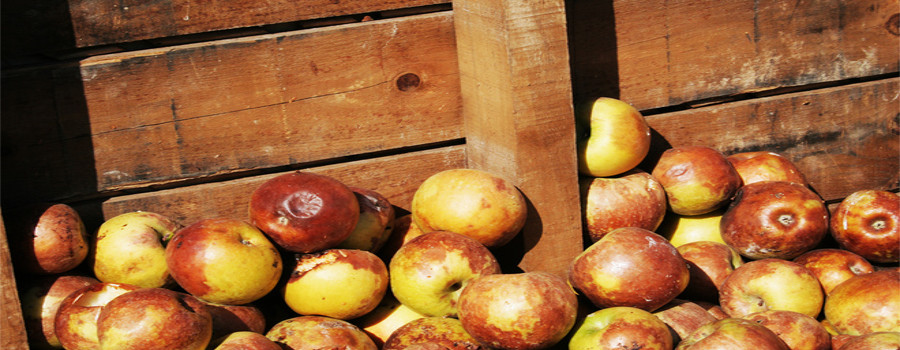
by Teba Torres Zapata | Feb 24, 2016 | Agrofood, CARTIF Blog
We like food. We like eating. The gastronomy is fashionable. TV channels and programs dedicated exclusively to cookery, children chefs, kitchenware that before only used to have the chefs come to our homes, blogs with a plenty of recipes, and culinary criticisms, even TV programs about the science of food or how do it. We can make our own beer, wine or cheese at home, buy us a bakery machine, any of us have access now or all kinds of ingredients to emulate our favorite chefs. So how can we explain that every year tons of food are thrown away?
From this perspective starts the plot of the movie Just eat it, a 2014 documentary which attempts scrutinizing the causes of the current global problem of food waste.
Currently all groups of experts, scientists and government agencies agree that the food losses and waste (FLW) as one of the great problems of our planet, and we have to solve it right away because of its ethical, environmental, social and economic implications.
If in the world, 800 million people go hungry, being the cause for the death of 3 million children per year, while we throw tons of food (about 1.3 billion tons per year), something is not working well. This is the first fact that alarms us and hurts us morally regarding to the FLW, thinking about how many people could be fed with the food we throw away.
But there are other concerns and impacts associated with the problem of the food losses and waste, such as environmental implications. Overexploitation of natural resources in the process of production, processing and distribution, such as salinization and soil erosion or abusive use of rivers and groundwater, besides the externalities due to the use of pesticides and chemical fertilizers, like air pollution and water or health problems for workers and consumers.
The exactly numbers of the quantity of food that it is wasted are currently estimated data, but the FAO estimates that we waste a third of the food that we produce, ¡¡a third!!, this is equivalent to about 1.300 millions of tons, and in every stage of the chain, from the primary production to the consumption of these at households.
The reasons for this food wasting are many, lack of adequate infrastructure in the producers’ storage, mismanagement during transport, high standards of market (fruits and vegetables with an “imperfect” or “ugly” appearance are discarded), excessive size the portions in restaurants, lack of planning on shopping by consumers, etc …
It is true that governments, institutions and citizen groups are beginning to worry and launch initiatives to change this situation, but it is necessary that all the actors involved go in the same direction and begin to act immediately.
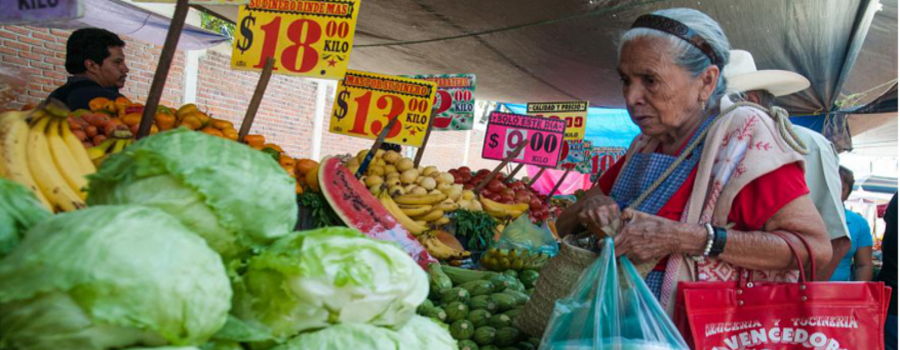
by Teba Torres Zapata | Jan 27, 2016 | Agrofood, CARTIF Blog
From November 30 to December 11 was celebrated Paris the COP21, the twenty-first conference on climate change. One of the objectives of this summit was to reach agreements between the participating countries, which allowed limit global warming to a level below 2 ° C.
When we consider man’s contribution to climate change, in particular emissions of greenhouse gases, we are thinking about the big electricity companies, energy production or emissions from transports, but our diet and the way in which we consume our food have an important role in contributing to climate change.
Food systems worldwide are responsible for up to 30% of all greenhouse gas emissions. (FAO). Furthermore, 2050 is forecast population growth, which will require an increase in agricultural production and will therefore increase pressure on natural resources.
We must find a more sustainable way of feed the world, looking healthier diets and friendly nature. Recently Chatham House (Royal Institute of International Affairs), non-governmental non-profit organization that works to build a sustainable world, has published a report which concluded that a diet change is needed to reduce global warming.
In this report, it is concluded that we keep too carnivorous diets, which contribute directly to global warming and that the livestock sector is responsible for 15% of greenhouse gas emissions. The meat is the least efficient food exists to feed the planet, the amount of arable land that is dedicated, limiting itself to other crops, and by the enormous expense involved water per kilo of meat produced.
Reduce meat consumption could reduce gas emissions by 25%, and switching to Mediterranean diets based on fish or vegetarian would have a considerable reduction in these emissions.
Accordingo to Gidon Eshel, the beef uses 28 times more land and 11 times more water than production chicken or pork. And compared to the production of potatoes or rice, the impact of beef per calorie, used 160 times as much land, besides the greatest emissions of greenhouse gases.
David Tilman, ecologist at the University of Minnesota, says that “global emissions of greenhouse gases would be reduced by an amount equivalent to the current emissions of all cars, trucks, trains, ships and airplanes. Moreover, this change in diet could prevent the destruction of tropical forests and savannas of a size equal to half of the US “
We must be aware of the impact our everyday actions have on greenhouse gas emissions, to make sustainable environmental choices. Choices to the time of making the shopping will be from now essential, if we want a sustainable planet for all, to feed the whole population (currently around 900 million people go hungry each day) and respect all living organisms.
Much of consumers think that the greatest effect of food contaminants, are the packaging and not the food itself. From now on, they will be necessary awareness campaigns, to inform consumers of the importance of the diet on the climate change.
We must walk towards more sustainable food systems, with less impact on the environment, acquiring the healthier diet patterns, that prevent diseases such as type II diabetes, obesity, cancer and cardiovascular diseases associated with diet.

